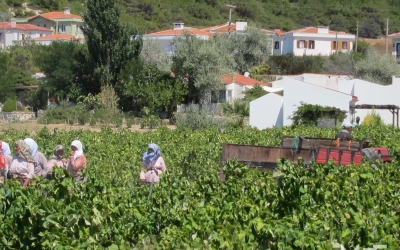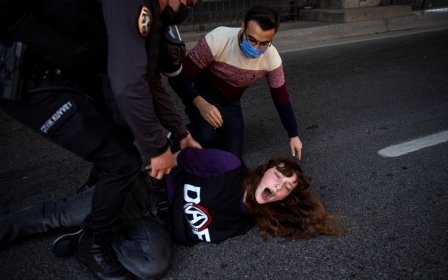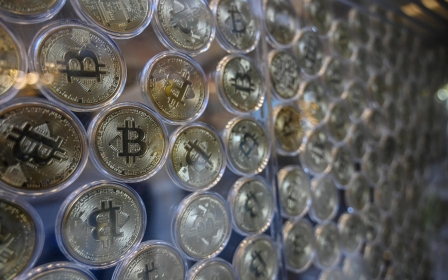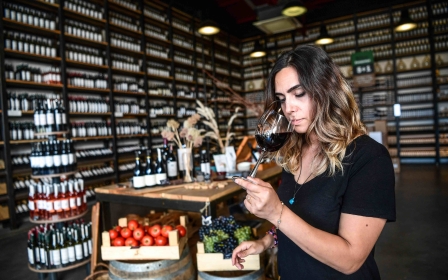Meet the man fighting the battle against Turkey's booze ban
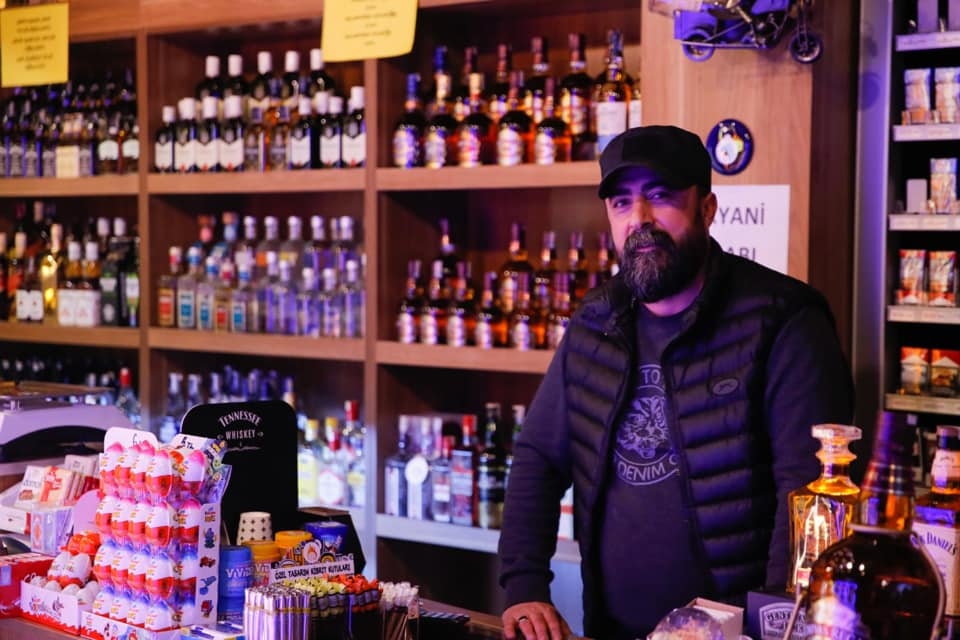
Turkey's government has faced an unprecedented backlash against a ban on alcohol sales imposed as part of a Covid-19 lockdown, with liquor store owners leading the fightback.
The decision last week to ban the sale of alcoholic drinks in shops for 17 days has also faced resistance from major supermarket chains like Migros and CarrefourSA.
Many liquor stores - known as Tekel stores - and supermarkets continued selling alcoholic beverages last weekend, citing the lack of proper legal framework for the ban.
“There isn’t any law or regulation that prevents us from selling alcoholic beverages,” said Ozgur Aybas, the head of Tekel Stores Platform, the group leading the resistance against the government-imposed ban.
'Store owners are desperate. People cannot pay their loans, many even are considering suicide'
- Ozgur Aybas, Tekel Stores Platform
“This is an interference against private life.”
New MEE newsletter: Jerusalem Dispatch
Sign up to get the latest insights and analysis on Israel-Palestine, alongside Turkey Unpacked and other MEE newsletters
A Turkish Interior Ministry statement to the public confirmed that supermarkets and liquor stores would not be able to sell alcohol, however an official circular released by the government did not mention it.
Two Turkish officials have said that the ban would be enforced, in any case, regardless of the confusion.
“We have 10,000 members, and they won’t make any money during this time. This is why everyone is selling as much as possible, trying not to get caught by the authorities,” Aybas said in an interview with Middle East Eye.
“Store owners are desperate. People cannot pay their loans, many even are considering suicide.”
Aybas, a 44-year-old Ankara resident who has managed a liquor store for the past 10 years, has been outspoken on both Twitter and traditional media against the ban, providing repeated interviews explaining that the ban itself was unconstitutional.
Users on social media have heralded him as a champion of the cause, with memes promoting him as a democratic warrior.
Turkish Interior Minister Suleyman Soylu claimed last December that imposing restrictions on alcohol during past lockdown weekends was logical because alcohol was a conductor for increases in Covid-19 cases.
“They could object as much as they wanted. However, our decision is consistent with the scientific view,” he said.
“Alcohol has an impact that causes less social distancing. Other Western nations did the same thing during the pandemic.”
Soylu said he believed alcoholic beverages were a conductor for spreading the virus, in a country which has one of the lowest recorded alcohol consumption rates among OECD countries.
However a member of the government’s own Covid-19 science committee, Serap Simsek Yavuz, said in televised remarks that there had been no logic to the alcohol ban.
“I’m genuinely astonished,” she said. “I don’t understand the reasoning behind it.”
The ban itself has triggered a huge backlash among Turkish citizens, nearly 40,000 tweets were sent with the hashtag “don’t touch my alcohol” last week as people stockpiled alcoholic drinks before the ban came into force.
'Ideologically motivated'
Alcohol consumption is historically a sensitive topic in Turkey, a symbolic flashpoint between religious conservatives and seculars for decades that has culturally divided Turkish society.
The Ankara Bar Association has already filed a lawsuit against the ban, saying the decision has no legal basis whatsoever since the government doesn’t have any authorisation to block the sale of any legal drink.
The Confederation of Turkish tradesmen and craftsmen, known as (TESK), also said in a statement that its members would continue to sell liquor.
“With our direct statements and messages to the public, we raised awareness on the issue,” said Aybas.
“Our civil disobedience is welcomed by the masses. People were even afraid of mentioning alcohol on TV. Not anymore.”
In recent years, the government has restricted the sale and advertisement of alcoholic beverages. Stores aren’t allowed to sell liquor after 10pm, and cigarettes and alcohol are even blurred out on TV.
Many in the country believe the ban is ideologically-motivated, since the lockdown coincides with the Islamic holy month of Ramadan a period during which alcohol consumption by pious Muslims is seen as particularly sinful.
Veli Agbaba, a deputy chairman for the main opposition party CHP, said that the ban was "an intervention against people’s lifestyle".
With supermarkets and liquor stores refusing to enforce the ban, the government has begun to use other means to implement their decision.
Provincial Public Health Boards in 22 provinces announced decisions to ban the sale of alcoholic beverages, even though lawyers believe they don’t have any authority to do so. More provincial boards are expected to issue similar decisions.
“Everyone believes that this ban is ideologically motivated,” Aybas said.
“I have received thousands of messages from politicians to journalists to young people. They all congratulated me for encouraging them. People are fed up.”
This article is available in French on Middle East Eye French edition.
Middle East Eye delivers independent and unrivalled coverage and analysis of the Middle East, North Africa and beyond. To learn more about republishing this content and the associated fees, please fill out this form. More about MEE can be found here.


